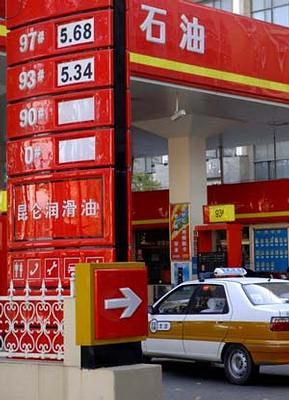China will allow its domestic airlines to increase fuel surcharge starting from next Monday to offset the pressure of oil price hikes on the aviation industry.
The passenger fuel surcharge will be raised from 50 yuan (USD6.7) per passenger for flights within 800 kilometers to 60 yuan. For long haul flights, the fee will rise from 80 yuan to 100 yuan.
The newly approved surcharges will take effect from November 5, according to a joint circular issued by the National Development and Reform Commission (NDRC), the country's economic planner, and the General Administration of Civil Aviation (CAAC).
The government's decision to raise prices of gasoline, diesel oil and jet kerosene by 500 yuan per ton from this month boosted fuel expense, which already accounted for 44 percent of the total cost in September, said sources with CAAC.
Ma Xiaoli, an analyst with Citic Securities, estimated, based on the analysis in 2006, that when the oil price climbs 100 yuan per ton, the net profit will be reduced by 220 million yuan for the China Eastern Airlines, 250 million yuan for the China Southern Airlines, and 180 million yuan for the Air China.
Fuel surcharge is a type of aviation tariff which requires the approval of relevant aeronautical authorities before it could be levied.
 |
|
The price board outside a gas station shows the new price of 93 octane and 97 octane petrol in Beijing, Nov. 1, 2007. The market price of 93 octane and 97 octane petrol rose, respectively, to 5.34 yuan (RMB) and 5.68 yuan(RMB) from 4.90 yuan and 5.22 yuan after China raised the prices of gasoline, diesel oil and aviation kerosene by almost 10 percent, starting from Nov. 1. (Xinhua/Luo Xiaoguang) |

Editor: canton fair |




